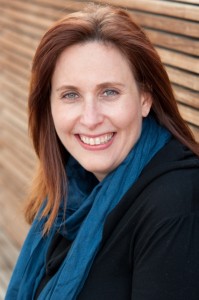5 Questions for a Professional Voice Over Talent – Erica Risberg
Today’s 5 Questions for a Professional Voice Over Talent are answered by Erica Risberg, a professional voice over talent based in Portland, Oregon.
1. The beginning: When did you know you wanted to be a voiceover talent; how did your career begin (please include what year it started) and then when did your passion for voiceover develop into something professional?
I knew I wanted to be a cartoon voice when I was about 4. My parents were very big influences on me – my mom was a kindergarten teacher and read stories with a variety of different voices; my dad did character voices and accents for as long as I can remember. I had a second life goal pop up when I was 12. My grandfather (aka my best friend) had died when I was ten, and I found out he wanted to be a physician when I was 12. I knew I didn’t have the fortitude to spend my days around blood, so I determined that I would be the family doctor, but I’d major in history. That second life goal took 25 years to attain, and kept me from focusing on my first love. I looked into voiceovers in my 20s, and again, when I started grad school in 2000 at the University of Maine. I went to the New England School of Communications and asked if they had voiceover classes. They convinced me to sign up for an announcing class instead. Great advice… I finished the class, and then took a course at the UM on making documentaries using archival sound. Thus was born another passion – sound preservation.
While living in Maine, I volunteered for the Maine Audio Information Reading Service, and then got a job as a part time announcer with the Maine Public Broadcasting Network. I got involved with a local film company, Edge Studio, in Bangor, and voiced the openings to their TV series “Strange America”, and did PSAs for MPBN. I graduated in 2006 with my sought after Ph.D., and moved to the Seattle area, where I decided to invest in my original passion. I came across Penny Abshire’s and James Alburger’s Voice Academy and started listening to calls. From there, I heard Marc Cashman and learned about the Voice 2010 conference, and decided that if I was serious about my pursuits, I wanted to have Marc as my coach, and that I would attend the conference. Between 2010 and April of 2011, I moved across the country twice, so, once again, I had to put my dreams on hold a little to attend to family issues, but I’m VERY happy to say that I’m settled now and can focus on my career. I had my demos done in January, and have started focusing in earnest on growing my business.
2. What is the one thing you know now that you wish someone had told you when you first started out in voiceover?
How critical networking is to growing your business. I am much wiser now, and have strategically targeted groups that I invest time in, and it would’ve been very helpful to know that up front so I would’ve invested my time more effectively.
3. What do you see as the biggest professional or personal obstacle you face that impacts your voiceover business and how are you working to overcome it?
The biggest obstacle I’m facing is becoming a known quantity in the community. I’ve moved a lot and had lots of family members pass away in the past 6 years, and I’m finally at a place in my life where I can settle down and establish roots. I have enthusiasm and dedication, but until I break through and develop a reputation like I have as a researcher, I will keep spinning wheels. That requires a lot of investment in places that are out of my comfort zone, such as signing up as an extra for film and TV. In Portland, the best way to get known is to get myself out there in the community, and so, while I’m not a huge fan of being in front of the camera, it enables me to meet people that have connections. From there, it will grow, but I have to start where I live.
4. What personal trait or professional tool has helped you succeed the most in your career so far?
It’s hard to choose one. I listen very well and have an aptitude for hearing nuances and mimicking them with my own voice. I also have a very high standard of responsibility, and my manners seem to work well too. I’m also personable and a problem solver. More than you probably wanted to know, but I did say it was hard to choose.
5. In your development as a voice over performer, who has been the one particular individual or what has been the one piece of performance advice (maybe a key performance trick, etc.) that you felt has had the most impact on your actual voice over performance and why?
Marc Cashman has been incredibly helpful as a voiceover coach. I met him at the Voice 2010 conference and asked him if he’d like to take me on as a student. The growth I’ve had under his guidance has been remarkable. His balance of constructive criticism and encouragement has helped me develop my voice to a level I hadn’t imagined. I also have to thank Pat Fraley for his courses as well – I’ve practiced his “Greatest Cartoon Voice Tricks Ever Smuggled out of Hollywood” pretty regularly, and have developed quite an aptitude for some of the sounds. Past them, well, I have to say that the entire voiceover community is incredibly welcoming and supportive. There are several individuals whom I haven’t worked with personally, but have been really encouraging. Everyone I’ve met personally or online has been so forthcoming with their knowledge it’s amazing. It’s really a pleasure to be working in such a great environment.





i am lovin’ this series – great work all!
I loved the interview and learning more about Erica……where she’s been and how she got to where she’s at now! Thanks for sharing!
Loved this! Thanks for sharing your journey with us, Erica! 🙂
Thanks Todd!
Best always,
–Peter
Kurt,
Erica is great to read about and even nicer in person. Thanks for visiting.
Best always,
–Peter
Hi Jodi,
That’s a nice way to look at it – sometimes it feels like a march but I’ve got to remember it’s a journey.
Best always,
–Peter